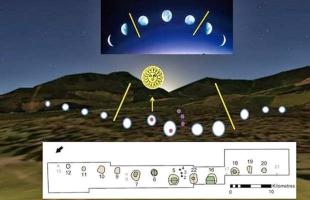Copy Link
Add to Bookmark
Report
Cider Digest #1255

Subject: Cider Digest #1255, 10 September 2005
From: cider-request@talisman.com
Cider Digest #1255 10 September 2005
Forum for Discussion of Cider Issues
Dick Dunn, Digest Janitor
Contents:
Cider in Norway ("Alex Hill")
Re: Cider Digest #1254, 7 September 2005 (jim mcdonald)
Cortland (was Cider in Norway) (Claude Jolicoeur)
Harry Master's Jersey (Jason MacArthur)
Re: Availability of PME Samples ("Gary Awdey")
Send ONLY articles for the digest to cider@talisman.com.
Use cider-request@talisman.com for subscribe/unsubscribe/admin requests.
When subscribing, please include your name and a good address in the
message body unless you're sure your mailer generates them.
Archives of the Digest are available at www.talisman.com/cider
----------------------------------------------------------------------
Subject: Cider in Norway
From: "Alex Hill" <alex@vigoltd.com>
Date: Thu, 08 Sep 2005 08:41:42 +0100
There are several Norwegain cider makers but I have the website for only
one: www.krune.no an outfit run by a classical guitarist by the name
of Njll Vindenes. He makes an excellent bottle fermented cider in deep
caves in Bergen, sourcing the apples from orchards around Hardanger Fjord.
He belongs to a loose group of cider makers. Well worth a business trip!
Alex Hill
------------------------------
Subject: Re: Cider Digest #1254, 7 September 2005
From: jim mcdonald <multiflorum@gmail.com>
Date: Thu, 8 Sep 2005 11:42:35 -0400
If anyone's interested, this is a worthy book on organic apple cultivation:
The Apple Grower: A Guide for the Organic Orchardist
by Michael Phillips
http://www.herbsandapples.com/books/grower.php
There's also a links page, with some hard cider links:
http://www.herbsandapples.com/books/ag_links.php
- --
jim mcdonald
~herbalist~
(248) 737-3589
www.herbcraft.org
------------------------------
Subject: Cortland (was Cider in Norway)
From: Claude Jolicoeur <cjoli@gmc.ulaval.ca>
Date: Fri, 09 Sep 2005 10:44:43 -0400
Charles McGonegal wrote in CD 1254 about Cider in Norway:
>I will note, in parting, that even the old standard dessert apples may
>be hardly recognizable when grown at the fringes of their range. I
>recall a varietal 'pomme du glace' from Cortland that I tried at a
>distilling seminar. One of the most amazing aperitifs I've ever had.
>But for that producer, Cortland was a late season harvest that hung well
>on the tree. (Even after freezing). The 'cider' was rich and spicy.
>That's not the Cortland I know - which is perfumed, but not otherwaise
>notable.
Charles,
This may not be the Cortland you know, but is surely the Cortland I know
and grow near Quebec City. I guess the producer you mention was also from
Quebec. In fact, our Cortland apples are quite different from imported ones
I have tasted. For us, Northern apples growers, Cortlands from more
southern locations are like another, completely different, variety of much
lower quality.
With such Cortland apples, I do an excellent single variety cider that has
amazed quite a few other cider afficionados.
Sometimes, I also wonder why I put so much effort in trying to grow
Yarlington Mill, Muscadet de Dieppe, and others, which are not well adapted
to my climate and have difficulty to mature their apples properly when I
have Cortlands (and some others) which are productive, full of sugars and
mature to perfection...
So, I am starting to think it is much better to have local apples matured
to perfection than vintage apples that are badly adapted to my location and
do not fully develop their flavors. The cider obtained might not have a
special character given by these vintage apples, but will have another
character, which we may call a local character, given by the varieties used
and the terroir, and I don't think this is in any way inferior.
Claude Jolicoeur, Quebec.
------------------------------
Subject: Harry Master's Jersey
From: Jason MacArthur <rotread@localnet.com>
Date: Sat, 10 Sep 2005 07:01:19 -0400
I am wondering if anyone can help me diagnose some problems that my
Harry Master's Jersey trees are having. Approximately 2 weeks ago I
noticed that the leaves at the tips of many of the vigorous
watersprouts were turning a very pale yellow with purple lines and
spots. Yesterday I went out and found all of the apples from one of my
trees on the ground, with the other two unwilling to yield their fruit.
Why would one tree drop it's fruit at this point in the season- is
this way too early for this variety? Are these problems connected- is
the fruit on the ground a stress sign? Any thoughts would be much
appreciated!
Jason MacArthur
Vermont, USA
------------------------------
Subject: Re: Availability of PME Samples
From: "Gary Awdey" <gawdey@att.net>
Date: Sat, 10 Sep 2005 10:36:15 -0400
Next weekend (Sept. 17-18) I'll begin packaging up PME samples in
preparation to put them into the mail. If there is anyone else who wants a
sample of PME to try in their keeve this year please let me know as soon as
possible so I'll be able to figure out if I have enough on hand now or will
need to order more.
If this is something new to you here are some things you might need to know:
(1) This is not the same thing as the pectinase you find in homebrew shops
(those contain other enzymes that seem to work against what you try to
acheive in a keeve). Food grade PME is available from two producers in
North America. Cost of the enzyme per gallon of cider is very low but the
enzyme is not available in small quantities that are convenient and
economical for small-scale cidermakers. This is essentially the same thing
as the Klercidre that Andrew Lea mentions in his website, though at a
different activity level (ie concentration).
(2) This is an enzyme that occurs naturally in apples and pears but not to
an equal degree in all varieties. No additional PME is needed to get a
successsful keeve if you use the right fruit and practices. Addition of
extra PME simply allows you to do it more reliably given limited choices of
fruit or uncertainty about how much PME your fruit contains. Doing a
side-by-side comparison (with and without added PME) will help you determine
if it is of any real benefit for the fruit and practices you use. This sort
of comparison may also make your trial more useful to others.
(3) The source for this PME is Aspergillus niger, a common sort of mold.
Genetic modification has been used in some microorganisms to provide enzymes
used in food-related processes such as cheesemaking but no modification has
been done in the case of the microorganism used to produce the PME samples I
will be providing. The sample will contain no mold, just the enzyme in a
sterile solution.
(4) The PME is used in conjunction with a calcium salt (calcium chloride,
though calcium carbonate may be substituted) to help precipitate out the
pectin. When this precipitates by a gelling process (forming a chapeau
brun, a.k.a. brown cap) and the cider is carefully racked away from between
the top and bottom layers it removes much of the spoilage bacteria and
soluble yeast nutrients. A relatively slow, controlled fermentation follows
and this is one way to produce a cider with higher residual sweetness.
Since different forms of calcium chloride are available commercially (mainly
different in the amount of water with which they are saturated) I'll be
offering to include a premeasured amount of CaCl2 with the samples for
anyone who wants to try it for a small batch of, say, 20 gal or under. That
should help to reduce some of the confusion over how much CaCl2 to add. For
those who will be doing larger batches I'll be sure to let you know what I
know about CaCl2 sourcing and dosage.
(5) If the must/juice/sweet cider used to make cider contains little pectin
then adding extra PME may provide little or no advantage. Use of fully ripe
fruit and/or maceration will improve the chances of achieving a successful
keeve. Maceration with PME will greatly improve the chance, as well as
increase yield somewhat. PME may also be used as a substitute for other
commercial pectinase enzymyes to improve the yield in juice extraction.
The PME may be added to the juice after pressing but after giving it a try
myself I can say that I really like the practice that Ira Edwards used last
year (i.e. diluting the PME with some juice and spraying it directly onto
the milled apples prior to maceration and pressing).
(6) Past samples have been sent to 13 US states, Quebec, British Columbia,
New Zealand, Australia and the UK. This year I'll continue to send
samples wherever there is interest. There were no problems with holdups in
customs last year, though most do appear to have been opened for inspection.
A product data sheet and Material Safety Data Sheet will be attached in an
external pouch to make it easier for the customs and postal inspectors.
(7) These samples are offered free of charge for the purpose of promoting
experimentation and discussion that will further our collective knowledge
about cidermaking practices. This year will be the last time I'll offer it.
I have no interest in selling it and hope that some homebrew shops or
winemaking shops will begin offering PME in convenient amounts by next year.
Any suppliers interested in more information please feel free to email me
offline.
(8) You will need to email me at gawdey@att.net to let me know how much
cider you'll be making with PME, where to send the sample, and whether or
not you'll want the CaCl2 as well. If you'll need extra CaCl2 for a control
batch I'll need to know that too. Also, if there is a spike of late
interest as there was last year I'll need to order more PME. Just in case
this happens please let me know if you will be pressing before Sept. 23 so
I will know whose samples must be sent first. For late-season cideramkers
and users in the Southern Hemisphere the sample may be stored under
refrigeration until the appropriate time.
(9) More information will be available in a packet I'll send with the
sample, as well as at Ciderday in Franklin County, Mass. on Nov. 5 (see
schedule linked at www.ciderday.org).
Gary Awdey
Eden, New York
------------------------------
End of Cider Digest #1255
*************************

























